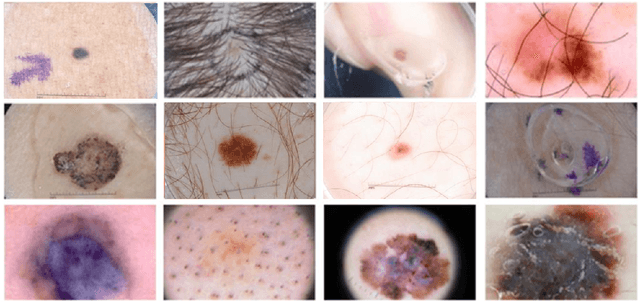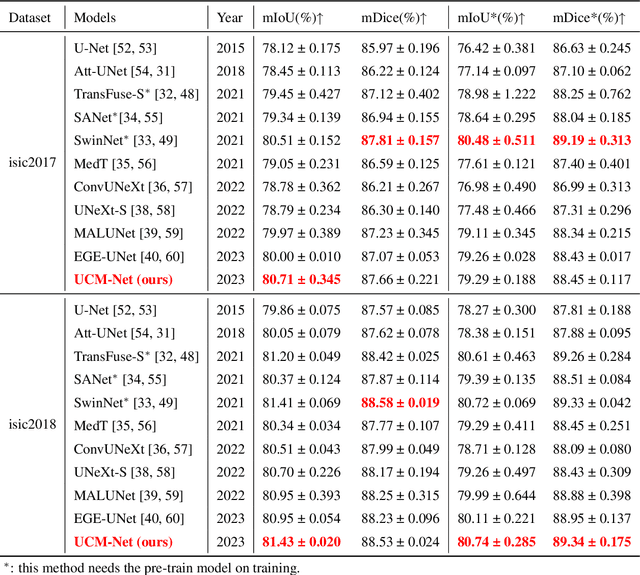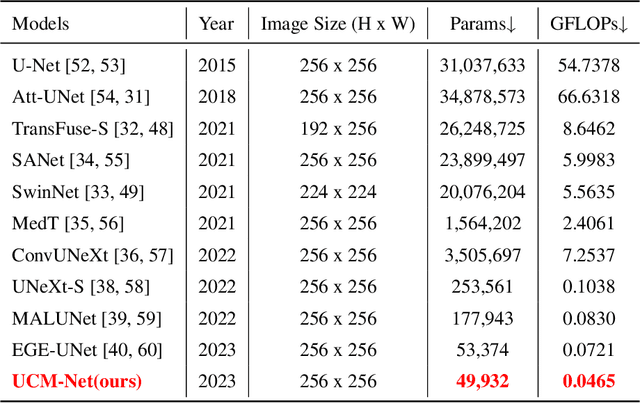UCM-Net: A Lightweight and Efficient Solution for Skin Lesion Segmentation using MLP and CNN
Paper and Code
Oct 14, 2023



Skin cancer is a significant public health problem, and computer-aided diagnosis can help to prevent and treat it. A crucial step for computer-aided diagnosis is accurately segmenting skin lesions in images, which allows for lesion detection, classification, and analysis. However, this task is challenging due to the diverse characteristics of lesions, such as appearance, shape, size, color, texture, and location, as well as image quality issues like noise, artifacts, and occlusions. Deep learning models have recently been applied to skin lesion segmentation, but they have high parameter counts and computational demands, making them unsuitable for mobile health applications. To address this challenge, we propose UCM-Net, a novel, efficient, and lightweight solution that integrates Multi-Layer Perceptions (MLP) and Convolutional Neural Networks (CNN). Unlike conventional UNet architectures, our UCMNet-Block reduces parameter overhead and enhances UCM-Net's learning capabilities, leading to robust segmentation performance. We validate UCM-Net's competitiveness through extensive experiments on isic2017 and isic2018 datasets. Remarkably, UCM-Net has less than 50KB parameters and less than 0.05 Giga-Operations Per Second (GLOPs), setting a new possible standard for efficiency in skin lesion segmentation. The source code will be publicly available.
 Add to Chrome
Add to Chrome Add to Firefox
Add to Firefox Add to Edge
Add to Edge